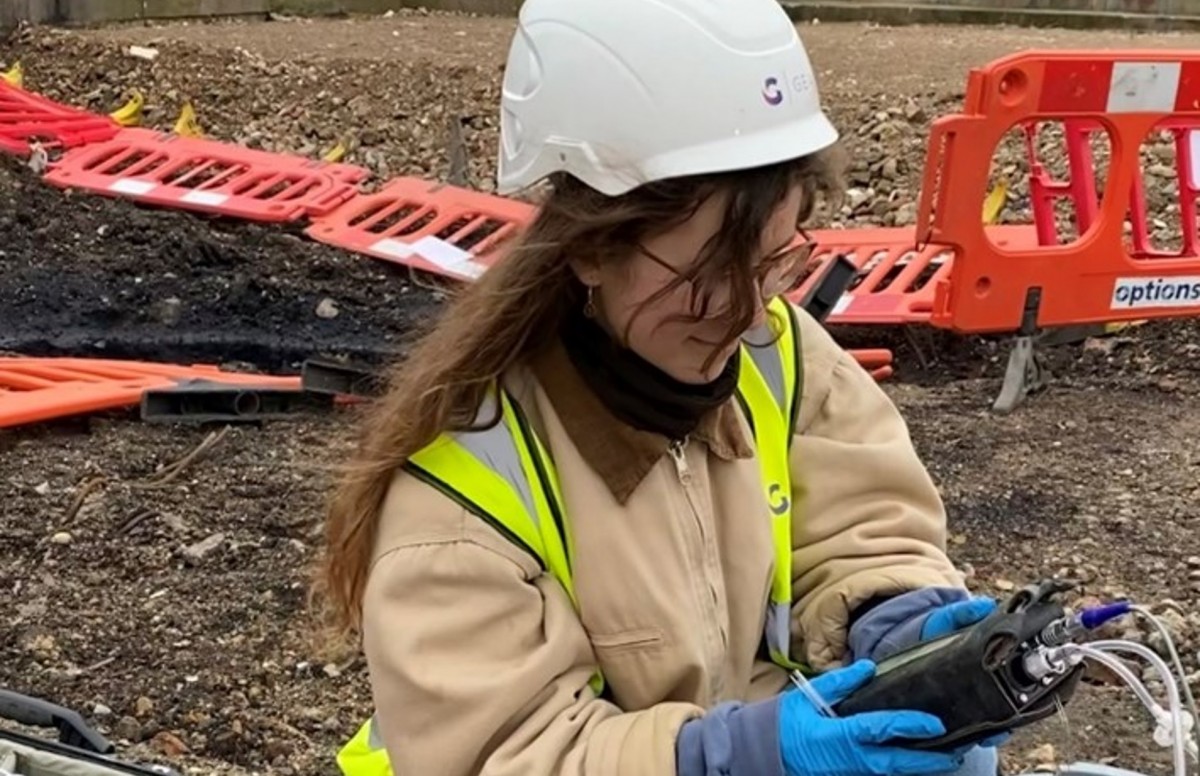Excitement About Geotheta

A geotechnical engineer is a specialized civil engineer who focuses on the actions of dirt, rock, and other products located below the Planet's surface. They apply scientific concepts and design methods to assess the residential or commercial properties and actions of these materials to sustain the safe and reliable design, building, and maintenance of facilities projects.
They conduct website examinations, collect examples, carry out research laboratory tests, and examine data to examine the viability of the ground for building tasks - Geo Tech Engineering. Based upon their searchings for, geotechnical engineers provide suggestions for structure design, incline security, preserving structures, and reduction of geotechnical risks. They collaborate with various other experts, such as architects, structural engineers, and building teams, to guarantee that geotechnical considerations are integrated right into the total task layout and implementation
By analyzing the behavior and residential or commercial properties of soil and rock, they can identify potential geotechnical hazards such as landslides, dirt negotiation, or incline instability. Their expertise aids prevent failures or accidents that could jeopardize lives and residential or commercial property. Below are some in-depth tasks and obligations of a geotechnical engineer: Website Investigation: Geotechnical designers conduct website examinations to collect data on subsurface conditions.
They interpret the data to understand the residential properties and habits of the dirt and rock, including their toughness, leaks in the structure, compaction characteristics, and groundwater conditions. Geotechnical Analysis and Design: Geotechnical engineers assess the data gathered during site investigations to evaluate the security and viability of the website for building tasks. They perform geotechnical calculations and modeling to examine aspects such as birthing capability, negotiation, slope stability, lateral earth stress, and groundwater circulation.
Not known Incorrect Statements About Geotheta
Structure Layout: Geotechnical designers play a crucial role in designing foundations that can securely sustain the intended framework. They examine the dirt problems and lots needs to determine the proper structure kind, such as shallow structures (e.g., footings), deep structures (e.g (https://www.4shared.com/u/w_sNL5Rc/ianhammond2191.html)., heaps), or specialized strategies like dirt renovation. They consider factors such as negotiation limits, birthing ability, and soil-structure interaction to develop optimal structure layouts
They review building plans, display website activities, and carry out field examinations to verify that the style recommendations are adhered to. If unforeseen geotechnical issues arise, they examine the situation and give referrals for removal or modifications to the style. Danger Analysis and Mitigation: Geotechnical designers evaluate geotechnical threats and threats related to the task website, such as landslides, liquefaction, or dirt erosion.

Collaboration and Interaction: Geotechnical engineers work closely with various other experts associated with a project, such as designers, structural designers, and construction teams. Effective interaction and collaboration are necessary to integrate geotechnical factors to consider into the overall task style and building process. Geotechnical engineers offer technological knowledge, solution queries, and make certain that geotechnical demands are fulfilled.
All About Geotheta
Below are some kinds of geotechnical engineers: Structure Designer: Foundation engineers concentrate on developing and evaluating foundations for frameworks. They examine the soil conditions, lots needs, and site qualities to establish the most appropriate foundation kind and layout, such as shallow foundations, deep structures, or specialized strategies like pile foundations.
They examine the variables influencing incline stability, such as soil residential or commercial properties, groundwater conditions, and slope geometry, and establish strategies to stop incline failings and minimize threats. Quake Designer: Quake engineers focus on assessing and developing frameworks to withstand seismic forces. They analyze the seismic danger of a site, assess dirt liquefaction capacity, and create seismic design criteria to ensure the safety and strength of frameworks during earthquakes.
They do area testing, collect samples, and analyze the accumulated data to identify the dirt residential or commercial properties, geologic formations, and groundwater conditions at a site. Geotechnical Instrumentation Designer: Geotechnical instrumentation designers focus on monitoring and measuring the actions of dirt, rock, and frameworks. They install and keep instrumentation systems that check aspects such as soil negotiation, groundwater levels, slope movements, and architectural variations to analyze efficiency and give early warnings of prospective problems.
The Best Guide To Geotheta
They have a tendency to be investigative people, which indicates they're intellectual, reflective, and analytical. They are curious, systematic, rational, logical, and rational. Several of them are additionally social, implying they're kind, generous, participating, client, caring, valuable, understanding, sensible, and friendly. Does this sound like you? Take our complimentary career test to locate out if geotechnical designer is one of your top occupation matches.
In the office setting, geotechnical designers utilize specialized software application tools to do estimations, produce layouts, and assess information. They prepare reports, review project specs, communicate with clients and team members, and coordinate task tasks. The office setup gives a favorable atmosphere for study, analysis, and partnership with various other specialists involved in the job.
Getting The Geotheta To Work
They regularly see project sites to perform website investigations, evaluate geotechnical problems, and gather information for analysis. These check outs involve taking a trip to different locations, often in remote or tough terrains. Geotechnical engineers might perform dirt tasting, conduct examinations, and screen building and construction activities to make sure that the geotechnical elements of the job are being carried out correctly.
Geotechnical engineers additionally operate in specialized geotechnical laboratories. In these facilities, they carry out experiments, do examinations on dirt and rock examples, and evaluate the design residential or commercial properties of the products. Geotechnical laboratory engineers function thoroughly in these environments, managing screening equipment, operating tools, and recording information. They collaborate with other research laboratory staff to ensure precise and trustworthy screening outcomes.
Comments on “The Geotheta Statements”